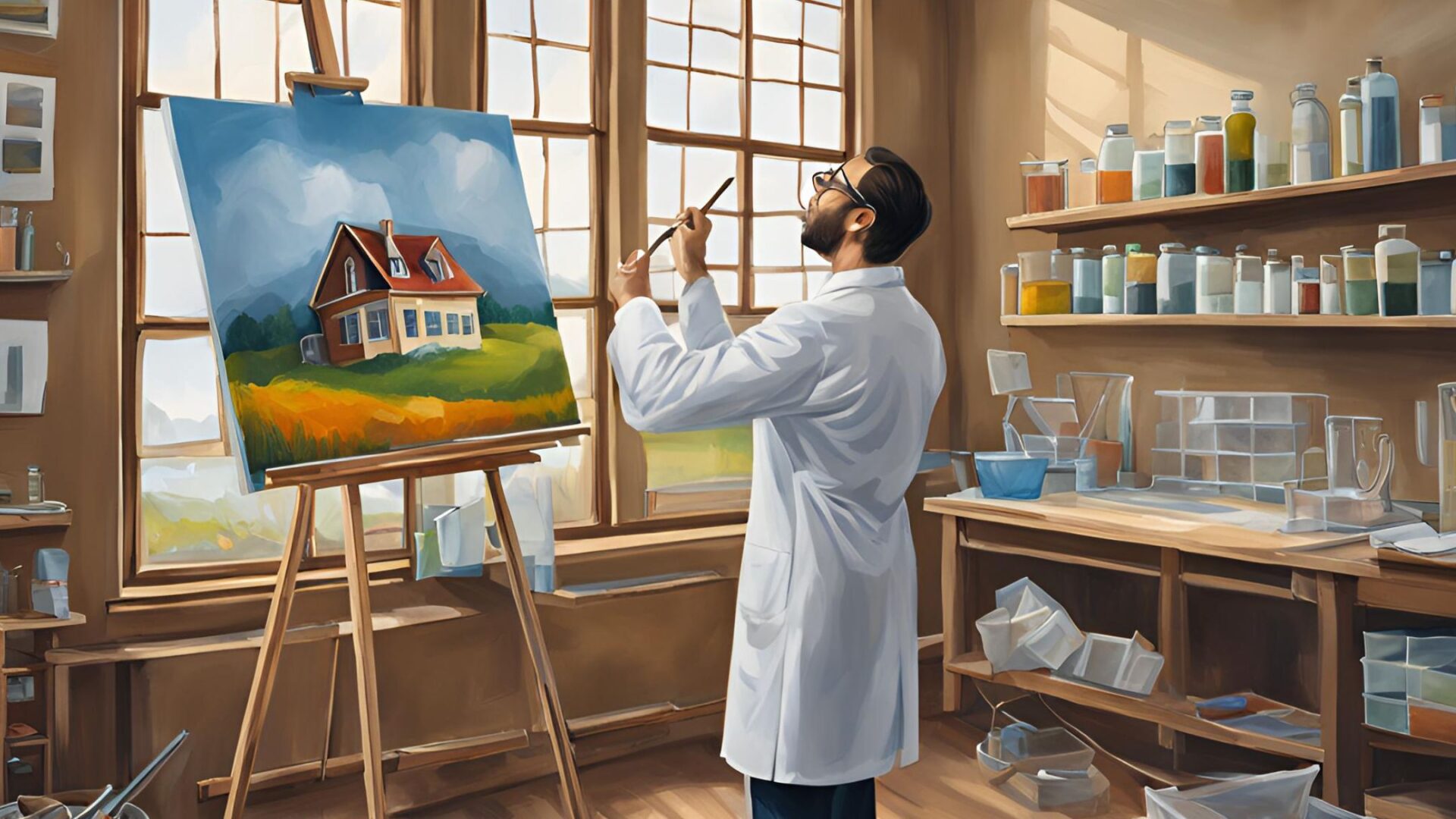Real estate is often viewed purely through the lens of transactions and investments, but it encompasses much more. It is a profession that blends both art and science, requiring a diverse set of skills. To become proficient in real estate, one must engage in continuous practice, honing the craft’s analytical and creative aspects.
Real Estate as a Science
- Data Analysis and Market Trends
Real estate as a science relies heavily on data analysis. Professionals use various tools and software to evaluate homes, analyze market trends, predict property values, and forecast market shifts. This data-driven approach lets agents make informed decisions, ensuring clients receive the best advice possible. Of course, this requires an understanding of the economics of real estate, such as how supply and demand result in an absorption rate, what impact changes in interest rates make on the market, etc. It also involves an understanding of risk assessment and loan qualifications.
- Legal and Regulatory Knowledge
Understanding the legal and regulatory framework is crucial. Real estate professionals must stay updated on laws, contracts, and regulations, including property CCRs, which require ongoing education and practice. This knowledge ensures that transactions are compliant and protects the client and the agent. With the current nationwide legal changes in process, new forms and procedures result in a significant shift in how buyers and sellers will relate with and compensate their agents. Current challenges relating to insurability have also become an essential element for agents to understand fully.
- Technical Skills
Technical skills in the use of various contract and disclosure forms are fundamental. Utilizing technology for communications and transaction efficiency is also essential. These skills enable agents to keep track of a myriad of details, maintain copious records, and be responsive to unexpected and often critical events that may determine the success or failure of a transaction.
Real Estate as an Art
- Personal Touch and Client Relationships
The art of real estate lies in building strong client relationships. Successful agents excel at establishing rapport and trust, tailoring their approaches to meet individual client needs and preferences. This personal touch is what often differentiates one agent from another. It requires understanding and adhering to the complete requirements of fiduciary responsibility and role with their client. That, in turn, necessitates that the agent be as objective as possible and make every effort to put the client’s interests and needs above their own desires or hopes. It also involves a significant understanding of the role psychology plays in the process, and appreciating that emotional factors will almost always determine the decisions all parties involved make.
- Creative Marketing and Presentation
Creativity in marketing and presentation is vital. Crafting compelling property listings, assisting in pre-marketing property preparations, staging homes attractively, and implementing innovative marketing strategies are all part of the artistic side of real estate. These efforts can significantly enhance a property’s appeal and marketability, thus ensuring a better result for the client.
- Negotiation and Problem-Solving
Negotiation is an art form within real estate. Finding win-win solutions and creatively resolving issues that arise during transactions require high skill and experience. Effective problem-solving often involves thinking outside the box and adapting quickly to new challenges. It frequently requires reaching out to other agents and enrolling their support in the mutual best interests of their clients. It also can be critically important to seek out the most successful combinations of actions that resolve a situation that might appear to have no solution.
In conclusion, real estate is a unique profession that requires a balance of scientific knowledge and artistic skill. Success in this field depends on effectively merging these two aspects. Continuous learning and intentional practice are essential for mastering the diverse skills needed in real estate. By embracing both the art and science of real estate, professionals can achieve great success and provide exceptional service to their clients.




